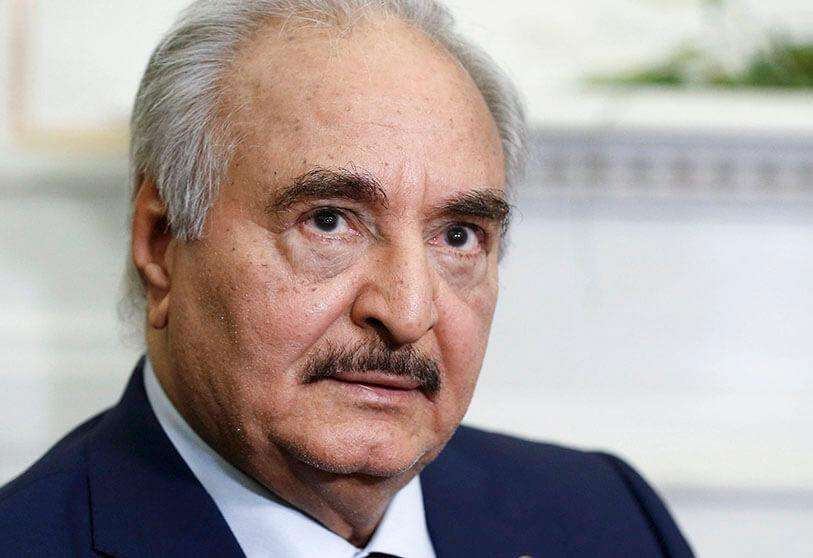Turkish Defence Minister flies to Libya amid growing tensions with Haftar

Turkish Defence Minister Hulusi Akar flew to Libya on Saturday with army officers, according to the state agency Anadolu. In order to inspect the Turkish military units present in the country.
The defence minister plans to meet his Libyan counterpart, Salaheddin al Namroush, the interior minister, Fathi Bashaga, and the president of the Supreme Council of State, Khaled al Mishri.
The unexpected visit comes after the call of Marshal Khalifa Haftar to "expel the Turkish occupier" while talks are being held to bring the country out of the deadlock.
All this comes after the Turkish parliament approved on December 22 the extension of the deployment of troops in Libya, where Ankara supports one of the factions, and in Afghanistan, where it has troops deployed as part of a NATO mission.
Turkey has had troops in Libya since January to support the National Accord government supported by the UN in Tripoli (ANG), which is harassed by the militias of Marshal Khalifa Haftar, who controls part of the country.
Marshal Haftar, has asked his forces to take up arms again to "expel the Turkish occupier" at a time when talks are being held to get out of the current crisis of stagnation in which they find themselves.
The Libyan Political Dialogue Forum (LPDF), a body set up by the UN to try to end the civil war in the North African country, agreed on 17 December to set up a legal committee to study the conditions for holding legislative elections on 24 December 2021 and the mechanism for selecting the future national unity government.
Although the special mission for Libya (UNSMIL) has been led on an interim basis for the past few months, the UN has made some progress in the Libyan peace process under Stephanie Williams. But despite this, the Bulgarian diplomat Nickolay Mladenov, whose appointment as the next UN envoy to Libya had already been approved by the Security Council, decided to resign from the post for personal reasons, the organisation announced on Tuesday.
Libya has been in chaos since the fall of the Muammar al-Gaddafi regime in 2011, with two authorities competing for power: the Tripoli Government of National Unity (GNA), recognised by the United Nations and supported by Turkey, and a government embodied by Khalifa Haftar, supported by Russia and the United Arab Emirates.

Turkey's support for the ANG, including sending military advisors and drones, allowed it to inflict a series of defeats on the Marshal's forces at the gates of Tripoli, according to Afp.
Libya is a failed state, a victim of chaos and civil war, since in 2011 NATO contributed militarily to the victory of the heterogeneous rebel groups over Muammar al-Gaddafi's dictatorship.
Today it is also one of the scenes of the war for control of the eastern Mediterranean being waged by Turkey and Italy, among others, which support the NAG, and Russia and Egypt, pillars of Haftar, in addition to Israel, France, Greece, Syria, Saudi Arabia and the United Arab Emirates.
"We must remember today that there will be no peace in the presence of a colonizer in our land", said the marshal on Thursday in reference to Ankara, whose parliament approved this week a motion extending for 18 months the authorization to deploy troops in Libya.
"Therefore, we will take up arms again to shape our peace with our own hands (...) and, since Turkey rejects peace and opts for war, get ready to expel the occupant by faith, will and arms", he said in a speech on the 69th anniversary of the country's independence.
"Officers and soldiers, get ready! " he hammered in front of hundreds of soldiers who were standing in the courtyard of a barracks in Benghazi (East).
At the same time, the head of the ANG, Fayez Al-Sarraj, called on his compatriots from Tripoli to "turn the page of disagreements to achieve stability". "This will only be done through solidarity between political forces," he said, according to Afp.
The head of the NAG welcomed the conclusions of the talks held under the aegis of the United Nations, including the organisation of elections on 24 December 2021, "an historic opportunity that must not be missed".
A ceasefire signed in October under the aegis of the United Nations and widely respected since then has allowed rival parties to return to the negotiating table.
The current peace process promoted by the UN offers many uncertainties as it lacks the full backing of the two rival governments in conflict and the support of Russia and Turkey, the two most influential powers, which are holding a dialogue in parallel outside the UN.








